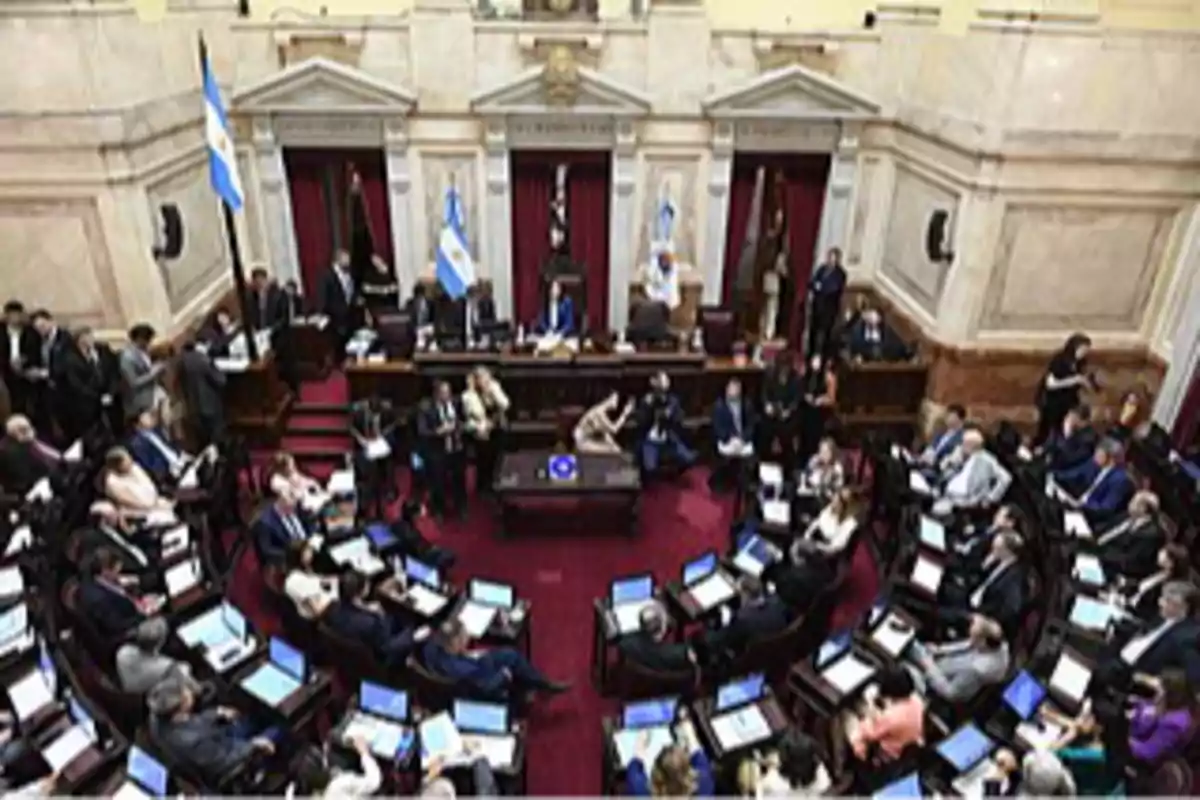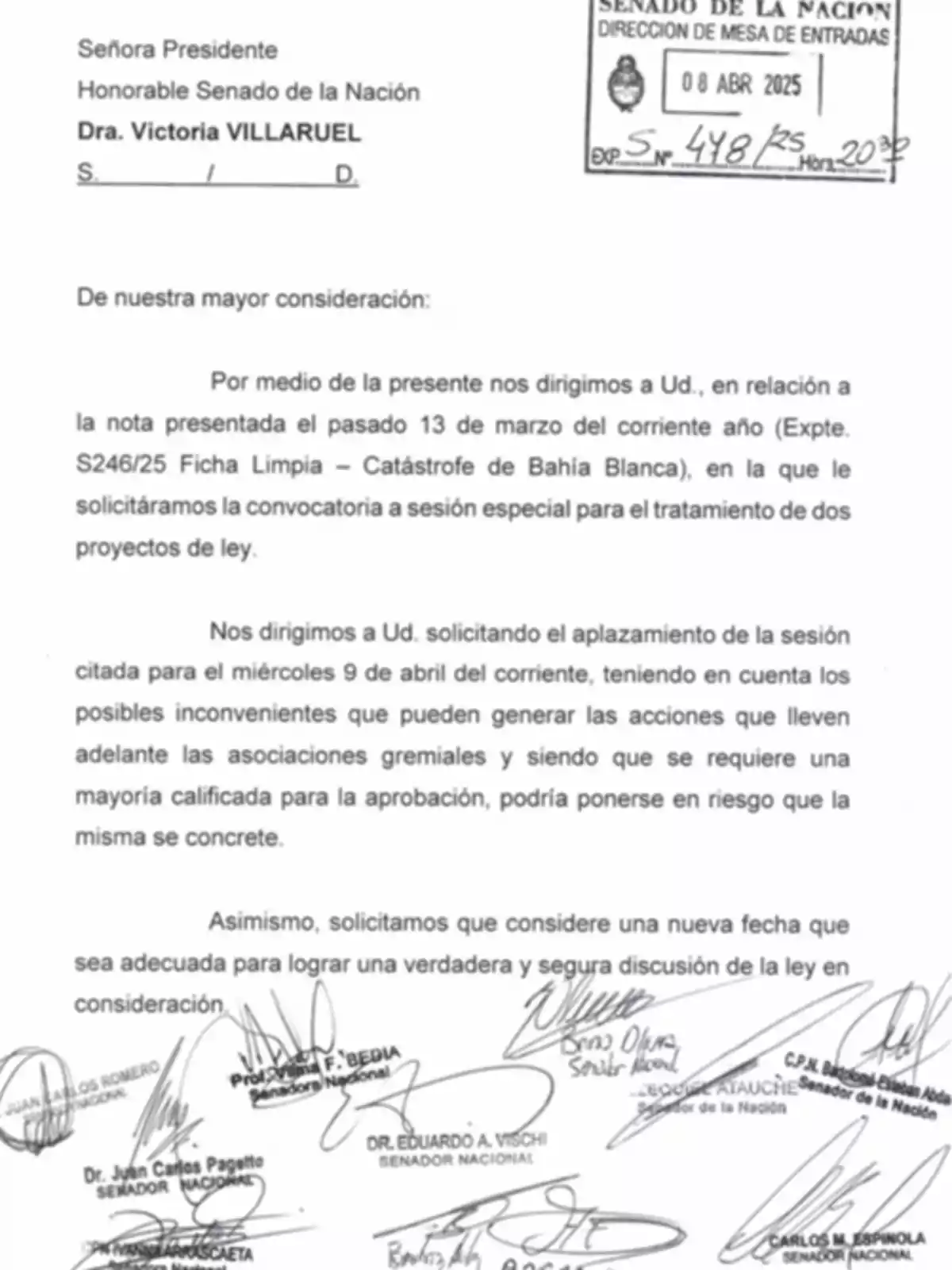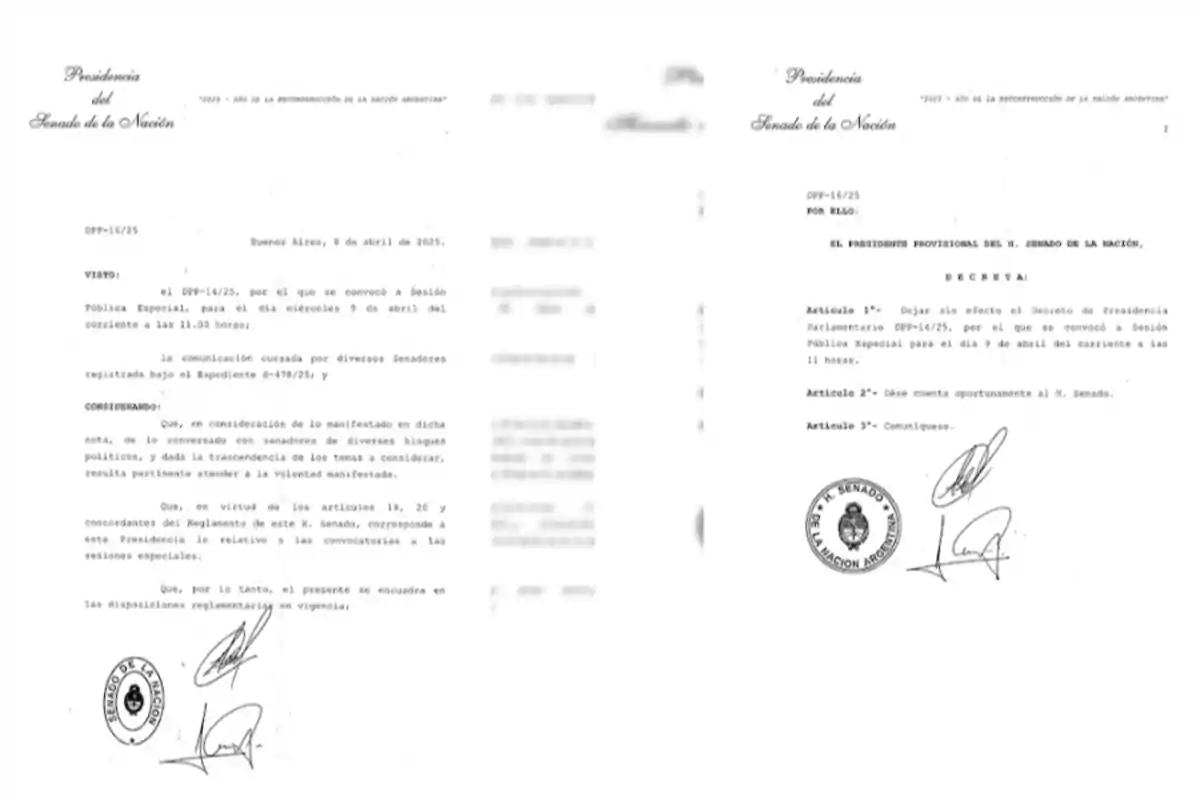
The Senate postponed the Clean Record session due to Wednesday's general strike.
37 votes are needed for the sanction, a call that coincided with the mobilizations of the union strike
In a new display of complicity with corruption, the Senate session to address the Clean Record Law was postponed indefinitely. It was confirmed at the last minute on Tuesday, frustrating a session convened for this Wednesday in the Upper House that had the backing of Casa Rosada and the majority of political blocs, with the aim of passing a essential law to clean up Argentine politics: preventing individuals with confirmed corruption convictions from holding public office.
The initiative, which has already been approved by the Chamber of Deputies, requires an absolute majority of 37 votes in the Senate. However, despite intense efforts led by the government, that number is not yet guaranteed due to the maneuvers of dialogue-oriented sectors and the Kirchnerist bloc that openly opposes transparency.

In recent hours, union mobilizations aligned with the strike planned for Thursday were used as an excuse by several senators to postpone the session, despite it being an essential citizen demand. The head of the libertarian caucus in the Senate, Ezequiel Atauche (Jujuy), implied that the law is ready, but there are sectors that resist change because they fear losing their privileges and businesses, he stated after a meeting at Casa Rosada where the legislative situation was assessed.
During the day, the halls of Congress were abuzz. Among the figures who mobilized to try to save the session were the Deputy Chief of Staff, José Rolandi, and the provisional president of the Senate, Bartolomé Abdala, who ultimately signed the resolution to postpone the debate, as President Victoria Villarruel avoided signing it, a decision some interpreted as an institutional gesture.
The request to postpone the session was signed by Atauche, the head of the Radical bloc Eduardo Vischi, the PRO senator Alfredo De Ángeli, and Carlos "Camau" Espínola from United Provinces, among others. It argued that "the actions of the unions and the lack of a qualified majority" jeopardized the proceedings.

What does the Clean Record Law establish?
The rule is clear and forceful: it prevents individuals with confirmed corruption convictions from being candidates or appointed to public office. Among the offenses included are:
Fraud against public administration (Art. 174 inc. 5)
Bribery, influence peddling, embezzlement, incompatible negotiations, illegal exactions, illicit enrichment, and cover-up, among others.
The key clause establishes that disqualification runs from the confirmation of the sentence in the second instance and remains until its eventual revocation or completion of the sentence. Additionally, the creation of a public Clean Record registry under the National Electoral Chamber is planned.
Appointments for executive and management positions, including Chief of Staff, ministries, secretariats, agency directorates, diplomacy, social security, and state companies, are also covered.
In Deputies, the so-called "Petri clause" was removed, seeking a more effective and applicable wording. The first article keeps the validity of the prohibition as long as the conviction is confirmed before the preparation of the registers (180 days before the general elections).
More posts: